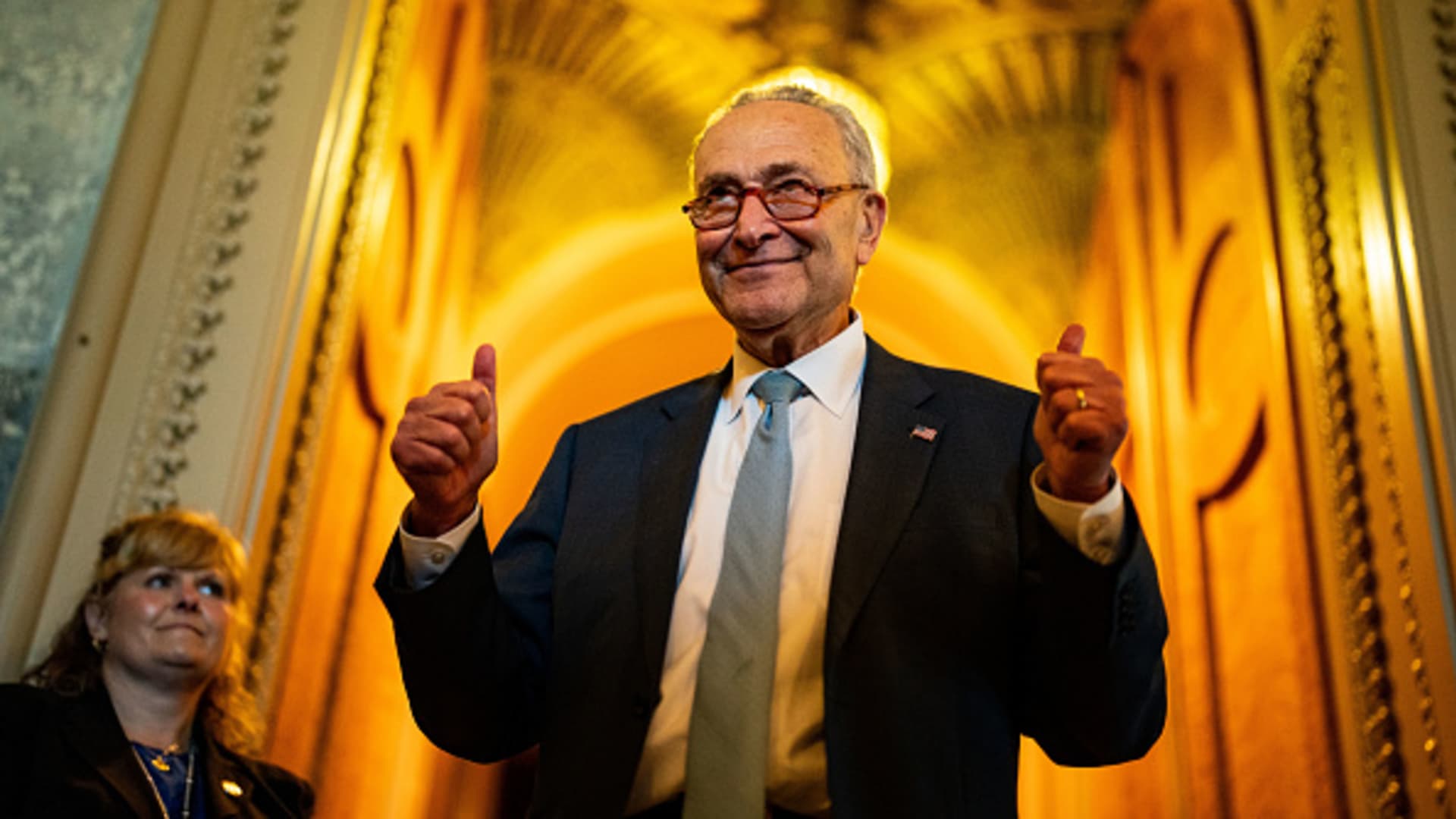rest.indah.link

Senate Majority Leader Chuck Schumer (D-NY) gestures, walking out of the Senate Chamber, celebrating the passage of the Inflation Reduct Act at the U.S. Capitol on Sunday, Aug. 7, 2022 in Washington, DC. T
Kent Nishimura | Los Angeles Times | Getty Images
We're taking a closer look at the potential investing implications of the Inflation Reduction Act, which the House of Representatives will soon take up after Senate Democrats passed the sweeping legislation Sunday on a party-line vote.
While Wall Street works to get its collective arms around the potential effects of the bill, some research with initial reactions and assumptions is out. That's what we'll review here, starting with the tax implications then moving to the auto and pharmaceutical industries.
Adblock test (Why?)
"auto" - Google News
August 11, 2022 at 01:48AM
https://ift.tt/WpPTBOQ
How the Inflation Reduction Act could impact our auto and drug stocks - CNBC
"auto" - Google News
https://ift.tt/CETlx9I
Shoes Man Tutorial
Pos News Update
Meme Update
Korean Entertainment News
Japan News Update

No comments:
Post a Comment